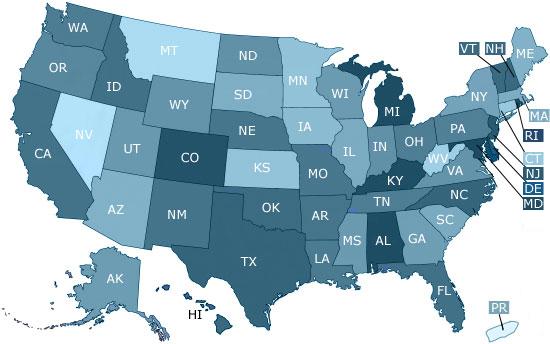An Introduction to Foreign-Trade Zones
Foreign-Trade Zones (FTZ) are secure areas under U.S. Customs and Border Protection (CBP) supervision that are generally considered outside CBP territory upon activation. Located in or near CBP ports of entry, they are the United States' version of what are known internationally as free-trade zones.Authority for establishing these facilities is granted by the Foreign-Trade Zones Board under the Foreign-Trade Zones Act of 1934, as amended (19 U.S.C. 81a-81u). The Foreign-Trade Zones Act is administered through two sets of regulations, the FTZ Regulations (15 CFR Part 400) and CBP Regulations (19 CFR Part 146).
Foreign and domestic merchandise may be moved into zones for operations, not otherwise prohibited by law, including storage, exhibition, assembly, manufacturing, and processing. All zone activity is subject to public interest review. Foreign-trade zone sites are subject to the laws and regulations of the United States as well as those of the states and communities in which they are located.
Under zone procedures, the usual formal CBP entry procedures and payments of duties are not required on the foreign merchandise unless and until it enters CBP territory for domestic consumption, at which point the importer generally has the choice of paying duties at the rate of either the original foreign materials or the finished product. Domestic goods moved into the zone for export may be considered exported upon admission to the zone for purposes of excise tax rebates and drawback.
Qualified public or private corporations that may operate the facilities themselves or contract for the operation sponsors foreign-trade zones. The operations are conducted on a public utility basis, with published rates. A typical general-purpose zone provides leasable storage/distribution space to users in general warehouse-type buildings with access to various modes of transportation. Many zone projects include an industrial park site with lots on which zone users can construct their own facilities.
Subzones are normally private plant sites authorized by the Board and sponsored by a grantee for operations that usually cannot be accommodated within an existing general-purpose zone.
READ MORE: http://www.cbp.gov/border-security/ports-entry/cargo-security/cargo-control/foreign-trade-zones/about
|

 Grantees:
Grantees:
No comments:
Post a Comment